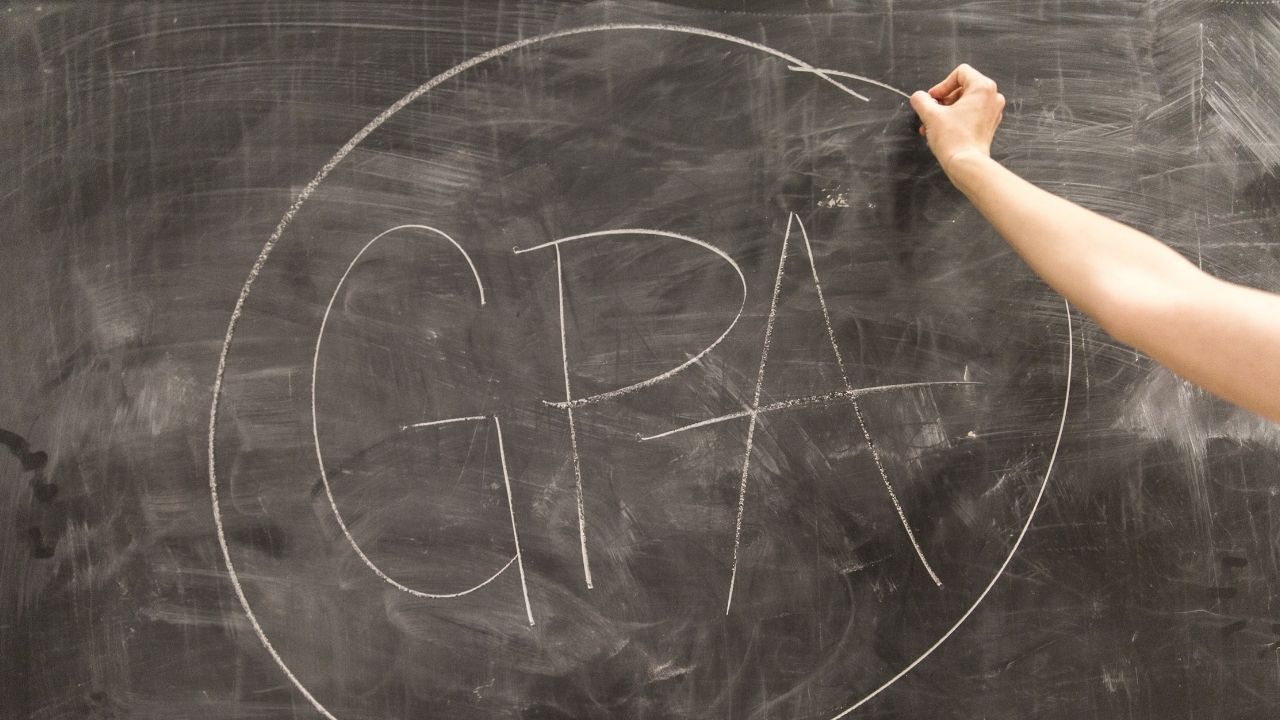Table of Contents
Introduction to the concept of GPA and its importance in education
Are you a high school student striving for academic excellence? Or perhaps a concerned parent wanting to understand the ins and outs of your child’s education? Either way, understanding the concept of GPA (Grade Point Average) is key. But have you ever heard of weighted GPA? Don’t worry if it sounds unfamiliar – we’re here to shed light on this crucial aspect of grading scales in education.
In this blog post, we’ll navigate through the world of GPAs and delve into what makes weighted GPAs unique. We’ll explore how they are calculated, their benefits for students, as well as some challenges they pose. So grab your thinking hat and let’s embark on an educational journey that will leave you with a clearer picture of the importance and intricacies behind weighted GPAs!
Also read: Bathroom in Spanish: Essential Vocabulary for Navigating Personal Spaces
Explanation of traditional vs weighted GPA
When it comes to grading in education, two terms that often come up are traditional GPA and weighted GPA. While both of these systems measure a student’s academic performance, they have some key differences.
Traditional GPA is the standard method used by schools to calculate a student’s average grade. It assigns equal weight to each course, regardless of its difficulty level or the amount of effort required. This means that an A in an easy class carries the same weight as an A in a challenging one.
On the other hand, weighted GPA takes into account the difficulty level of courses by assigning additional points for more rigorous classes such as honors or Advanced Placement (AP) courses. This means that students who take more challenging classes have the opportunity to earn higher GPAs.
To calculate a weighted GPA, each course is assigned a specific point value based on its level of difficulty. For example, an honors class may be given 0.5 extra points, while an AP class could receive 1 extra point. These additional points are added to the traditional scale and then averaged out to determine the weighted GPA.
The benefits of a weighted GPA are numerous for students aiming for college admissions or scholarships. It allows them to showcase their ability to excel in challenging coursework and demonstrates their dedication and commitment towards their education.
However, there has been criticism surrounding weighted GPAs as well. Some argue that it puts too much emphasis on grades rather than actual learning outcomes and can lead to unhealthy competition among students vying for top spots within their class rankings.
In response to these concerns about traditional and weighted GPAs, alternative grading systems have emerged such as competency-based assessments which focus on measuring proficiency in specific subject areas rather than overall averages.
Understanding the difference between traditional vs weighed GPAs is essential for both students and educators alike. Whether you support one system over another or believe in exploring alternative methods altogether depends on your perspective but having knowledge about different grading scales will undoubtedly help navigate the educational landscape more effectively.
How is a weighted GPA calculated?
One of the key differences between a traditional GPA and a weighted GPA lies in how they are calculated. While a traditional GPA is based solely on the numerical value assigned to each grade, a weighted GPA takes into account the difficulty level of the courses taken.
To calculate a weighted GPA, each class is assigned a certain number of points based on its level of difficulty. For example, an honors or AP course may be worth more points than a regular course. These point values are then added up for all classes and divided by the total number of courses taken to determine the weighted GPA.
The specific point scale used can vary depending on the school or educational institution. Some schools may assign different weights such as 4.0 for an A in an honors course compared to 3.0 for an A in a regular course.
It’s important to note that not all schools use weighted GPAs, so it’s crucial for students to familiarize themselves with their school’s grading policies and understand how their grades will be calculated.
Benefits of a weighted GPA for students
1.College Admissions Advantage
A weighted GPA can give students an edge in the competitive college admissions process. Colleges often consider not only a student’s grades but also the rigor of their coursework. A weighted GPA reflects this by giving extra weight to advanced or honors classes, showcasing a student’s willingness to challenge themselves academically.
2. Improved Scholarship Opportunities
Many scholarships require a minimum GPA for eligibility, and having a higher weighted GPA can increase the chances of receiving financial aid or merit-based scholarships. By taking advantage of weighted grading scales, students have more opportunities to stand out from the crowd and secure funding for their education.
3. Personal Growth and Challenge
Engaging in advanced classes encourages personal growth and provides intellectual stimulation beyond regular coursework. The challenges presented in these courses help develop critical thinking skills, time management abilities, and problem-solving techniques that will benefit students throughout their academic journey and future careers.
4. Enhanced Academic Preparedness
Weighted GPAs incentivize students to take on more challenging courses that align with their interests or intended college major. This allows them to gain valuable knowledge in specific subjects, providing a solid foundation for higher-level studies at the university level.
5. Competitive Edge in Job Market
Employers often value candidates who demonstrate strong academic performance during their educational years. A high weighted GPA can serve as evidence of discipline, dedication, and determination – qualities that employers seek when selecting top talent.
By understanding the benefits of a weighted GPA system, students can make informed decisions about course selection and maximize their potential for success both academically and professionally.
Challenges and criticisms of weighted GPAs
Challenges and criticisms of weighted GPAs can arise from various perspectives. One common concern is that weighting certain classes may create an unlevel playing field for students who do not have access to advanced or honors courses. This could potentially disadvantage those attending schools with limited course offerings or resources.
Additionally, some argue that weighted GPAs place too much emphasis on grades rather than the actual knowledge gained by students. Critics claim that this focus on numbers can lead to a narrow understanding of academic success and discourage genuine learning.
Another challenge is the inconsistency in how schools calculate and assign weights to different classes. There is no standardized method across educational institutions, which means that two students with identical coursework at different schools may end up with significantly different weighted GPAs.
Moreover, critics argue that a heavy reliance on GPA as a measure of achievement overlooks other important factors like extracurricular activities, community involvement, leadership skills, and personal growth. These aspects are often excluded from the GPA calculation but play a crucial role in holistic evaluations of student potential.
While there are valid concerns surrounding weighted GPAs, it’s essential to remember that they were designed to provide recognition for challenging coursework and offer opportunities for academic distinction. However, addressing these challenges should involve considering alternative ways to assess student achievements comprehensively while still acknowledging their dedication and hard work in rigorous classes.
Also read: Types of Doctors: Exploring Specializations in the Medical Field
Alternatives to the traditional grading system
As education continues to evolve, there are ongoing discussions about the limitations and drawbacks of the traditional grading system. While weighted GPA has its benefits, it is not without criticism. As a result, educators and experts have proposed alternative approaches to evaluate student performance.
One alternative is competency-based grading, where students are assessed on their mastery of specific skills and knowledge rather than a letter grade based on overall performance. This approach focuses on individual growth and development rather than ranking students against each other.
Another option gaining traction is narrative feedback or qualitative assessments. Instead of assigning numerical grades or GPA scores, teachers provide detailed written feedback that highlights strengths, areas for improvement, and specific examples of student work. This personalized approach encourages self-reflection and fosters a deeper understanding of subject matter.
Some schools have also implemented standards-based grading systems, where students are evaluated based on their attainment of predetermined learning objectives or standards. Rather than averaging all assignments into one final grade, this approach allows students to demonstrate mastery in different aspects of the curriculum independently.
Finding an alternative to the traditional grading system involves careful consideration and experimentation within educational institutions. It requires collaboration among educators, administrators, parents, and students themselves to develop assessment methods that accurately reflect learning outcomes while promoting personal growth.








